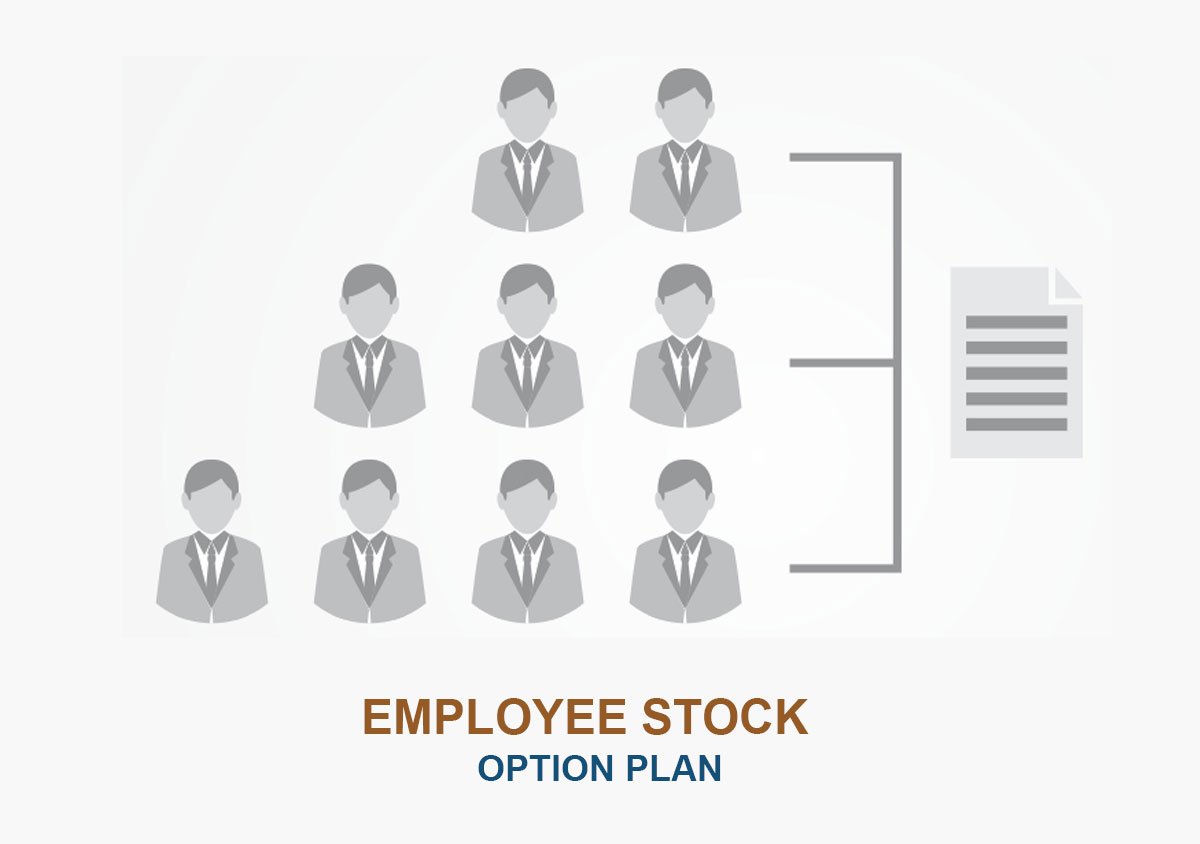

PRACTICE DETAILS
- Lawyer Mr. Shaman Jain
- Skills Compliance
- CATEGORY Compliances
ABOUT THIS PRACTICE
All entrepreneurs share one common trouble: how to keep your employees motivated such that both the parties (employee and employer) are benefited. The most practical solution for the same is employee stock options plan (ESOP), employed by both small and large businesses. It keeps your exemplary employees motivated by not binding them merely with the aim of fulfilling their duties and this ensures growth of your company and also retains your best employees for a number of years. Under ESOP, companies provide their employees with stock ownership, often free of cost , but in lieu of work performed. Shares are awarded to employees, but may be given only after a pre-defined period.
Why are ESOP's given?
An employer can give an ESOP to his/her employee for a large number of reasons . The trend of giving ESOPs is more common in start ups, since, they cannot afford large compensation packages for their employees. By giving an ESOP to the employees , the employer brings the employee closer to the interests of the company and imparts a sense of ownership in the employee , hence, motivating the employee to perform any task with high level of loyalty in the best interest of the company . Some companies provide ESOPs to employees which can be implemented on any future date, and this acts as an incentive for a long term commitment by the employee towards the company.
Applicability
It is applicable on any company whose shares are listed on any stock exchange in India.
What benefits does the company enjoy by providing ESOPs?
- Acquiring the shares of a departing owner: The owners of private companies are eligible to use the ESOP to sell their shares. Companies are permitted to make tax deductible contributions to the ESOP to buyout the shares or the company can utilize the ESOP to borrow money so as to buy the shares.
- Borrowing money at lower after-tax cost: Cash borrowed under ESOP is used to buy company shares and shares of existing owners. Contributions to the ESOP are tax deductible as they are made to compensate for the loan amount. Both principal and interest are tax deductible.
- Creates an employee benefit: A company can issue treasury shares or new shares to an ESOP and deduct the value from the taxable income. Companies at times contribute cash to the ESOP to buy shares from current public or private owners. In public companies, ESOPs are mostly used in concurrence with the employee savings plan. Instead of matching the employee’s savings through cash, the employers can match the employee’s savings through stocks from an ESOP, and usually the employers will match the savings at a higher level through stocks.
What are the tax implications of ESOPs?
- Choices given by the company are not taxable.
- Given options are not taxable.
- In case an employee picks up the option of buying shares, the difference between the market value of the shares and the exercise value of the share will be taxable as per the tax bracket the employee falls under.
- In case, an employee sells the shares it is understood as capital gains. 15% tax is imposed on the capital gains when an employee sells shares within one year. However, when an employee sells the shares after completion of one year they are considered long term assets and are non taxable.
- In case, an employee possesses ESOPs in a company based abroad, upon selling of the shares it will be considered as short-term capital gains and will be included in the income of the employee. After this, the employee will be taxed as per the tax bracket he/she falls into.
- In case, capital gains are long term, 10% tax will be imposed without the benefit of indexation or 20% tax will be imposed with the benefit of indexation.
Disadvantages
- Options might turn out to be a liability for the company. ESOPs do not have an option premium and the single compensation a company can rely on is indirectly through increased liquidity and sometimes through a tax advantage. The challenge for the exercise remains the same as it is for normal stocks. This can make options dangerous than normal stocks.
- The liquidity for the company can only be generated after the exercise on the options is executed and the amount of liquidity remains undetermined till the date of the exercise. The liquidity benefits with ESOPs is extremely uncertain.
- Still there exist various ambiguous guidelines for the valuation and accounting procedure of ESOPs in a company.



